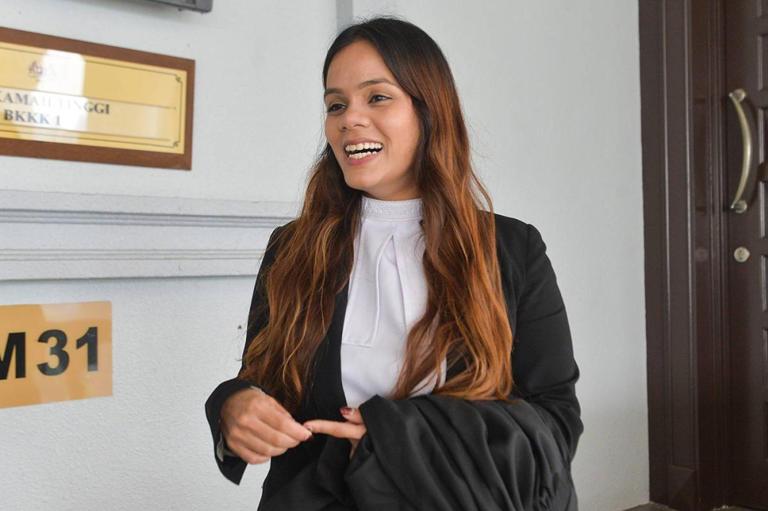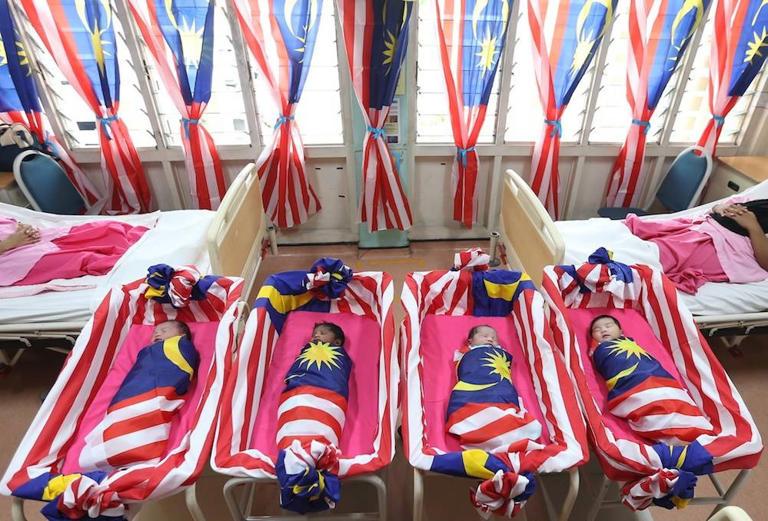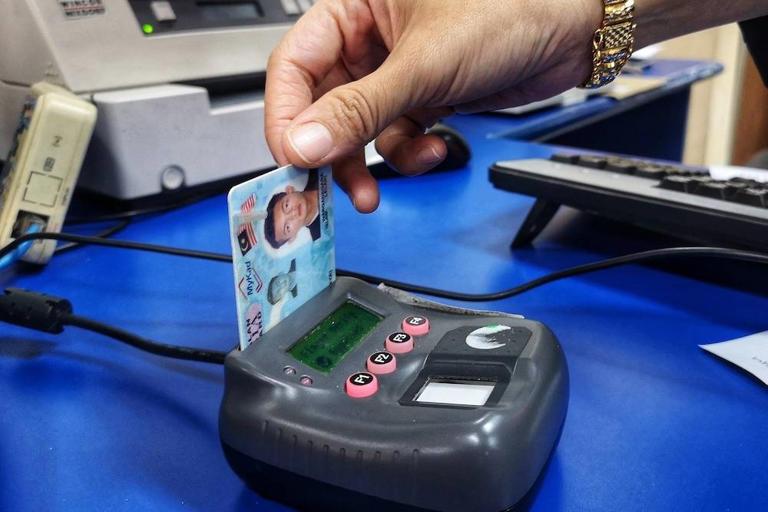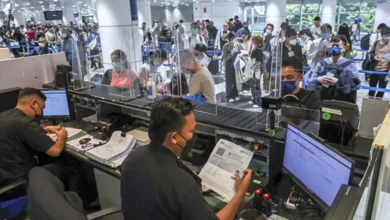Court allows Perak-born woman aged 67 to challenge Home Ministry’s rejection of citizenship bid

Court allows Perak-born woman aged 67 to challenge Home Ministry’s rejection of citizenship bid
KUALA LUMPUR, Jan 4 — The High Court today allowed a woman born in Perak in 1955 — before Merdeka Day on August 31, 1957 — to continue her challenge against the Home Ministry’s refusal to grant her Malaysian citizenship through naturalisation.
This stateless woman, who will be turning 67 later this year, is believed to be the first person to mount a court challenge against the Malaysian government’s rejection of applications to be a Malaysian through naturalisation.
The woman’s court challenge was through an application for judicial review, which requires the court to first grant leave or permission for the lawsuit to be heard.
In a brief hearing this morning, the woman’s lawyer Larissa Ann Louis informed the High Court that the Attorney-General’s Chambers (AGC) had in a letter dated January 3 and filed in court stated that they do not have objections to her client’s application for leave for judicial review.
High Court judge Datuk Ahmad Kamal Md Shahid then granted the woman’s application for leave for judicial review, which means that the court will next proceed to hear her lawsuit in full.
On November 22, this woman filed the lawsuit against the Home Ministry secretary-general, the National Registration Department’s director-general and the government of Malaysia, and sought to be declared a Malaysian citizen and be issued a citizenship certificate and the MyKad identity card.
DISYORKAN UNTUK ANDA :
- Sabotaj Dalaman Punca Sebenar Kekalahan UMNO Dalam PRU 15
- Mohamad Hasan dijangka kekal sebagai Timbalan Presiden
- Calon popular Ketua Pemuda Umno

Based on an affidavit or sworn document filed in court, the woman said she was born in 1955 — which is both before Merdeka Day and before Malaysia Day — in Hospital Teluk Anson in Perak, but was abandoned by her biological mother and was raised by her adoptive parents. — File picture by Razak Ghazali
Her story and struggle to be a Malaysian
Malay Mail is withholding the names of the woman and her family members, due to privacy reasons.
Based on an affidavit or sworn document filed in court, the woman said she was born in 1955 — which is both before Merdeka Day and before Malaysia Day — in Hospital Teluk Anson in Perak, but was abandoned by her biological mother and was raised by her adoptive parents.
She has no records of her biological parents’ nationality at all and only knows their names from her birth certificate, and does not know them at all.
Both her adoptive parents are Malaysians and they had cared for her as if she was their own child since birth, and had legally adopted her when she was nine. They are now deceased.
She was married in 1974 to her husband who was stateless but held a permanent resident status, and they had seven children who were born in the years from 1975 to 1992.
While her husband later died in 2016 as a stateless person, all their seven children are Malaysians.
The woman said she had never thought about her own citizenship status throughout those years as she was fully focused on raising her children, and had only applied to the NRD in March 2007 for permanent resident status when her youngest child had grown up.
After successfully obtaining the status of permanent resident in April 2007, she applied to the NRD on December 19, 2017, for Malaysian citizenship by naturalisation under Article 19 of the Federal Constitution. She also attended a Bahasa Melayu test by the NRD that same month but did not receive any further information after that test.
Five years later, the Home Ministry issued a letter dated August 23, 2022, to inform her that the Home Minister had decided to reject her 2017 application for Malaysian citizenship through naturalisation. The letter did not give any reasons for the rejection.
Having lived her entire life in Malaysia throughout these 67 years and not holding any citizenship from any country, the woman highlighted that she has suffered emotionally as her friends and neighbours had mocked her for being of “Bukan Warganegara” status or status of not being Malaysian.
She said she had also been frequently ridiculed as being a foreigner and has been unable to live a normal life like others as she is not a Malaysian.
She believes she should be granted Malaysian citizenship as she fulfills the conditions under Article 19 of the Federal Constitution for citizenship by naturalisation.
Under Article 19, the Malaysian government “may” grant a certificate of naturalisation to anyone aged 21 and above who applies for such citizenship, if the government is satisfied that the conditions have been met.
The Article 19 conditions are that the applicant has to be of “good character”, has “adequate knowledge” of the Malay language, and has lived in Malaysia for at least 10 years — within the 12 years before applying for citizenship via naturalisation — and intends to live permanently in Malaysia if the certificate of naturalisation is given.
Following the Home Ministry’s August 2022 rejection of her citizenship bid, the woman filed this lawsuit, seeking eight specific court orders, including a declaration that the Home Ministry’s decision in the August 23, 2022 letter is null and void and an order to quash that decision.
She is also asking the court to declare that she is a Malaysian citizen by naturalisation under either Article 19(1) or Article 19(2), or that she is a Malaysian citizen by operation of law under Article 14(1)(a) and the Section 1(1)(a) of Part I of the Federal Constitution’s Second Schedule.
She is seeking a court order to compel the government to issue a certificate of Malaysian citizenship and a MyKad to her, and for a declaration that she has legitimate expectations to have the status of being a Malaysian citizen and rights as a citizen, and to be compensated over the government’s alleged unconstitutional conduct in refusing her citizenship application.

Under Article 19, the Malaysian government ‘may’ grant a certificate of naturalisation to anyone aged 21 and above who applies for such citizenship, if the government is satisfied that the conditions have been met. — Picture by Shafwan Zaidon
When met after the court hearing, Larissa told Malay Mail that her client’s challenge of the citizenship rejection was significant as there are others facing similar situations.
“Because Article 15A has an age limit of 21 years old, the next registration article would be Article 19 via naturalisation for those aged above 21 years old. However, we have noticed that clients are struggling to qualify to apply despite meeting the conditions laid in the Federal Constitution.
“So it’s important to challenge this rejection as it impacts the public at large, and would help reduce the statelessness issue in Malaysia,” she said.
Highlighting that this case is believed to be the first such court case on two citizenship provisions in the Federal Constitution, especially a rejection of a naturalisation application, she said: “It’s very exciting to challenge an area that has not been challenged before, i.e. Article 19 and Article 14(1)(a) to set a potential precedent for all the cases that are coming ahead and to pave a way of hope for all the cases that are in this situation right now.”
Article 15A states that the federal government “may” register anyone aged below 21 as a Malaysian citizen under special circumstances as the government thinks fit, while Article 19 also states that the Malaysian government “may” grant the naturalisation certificate to those — aged 21 and above — applying for such citizenship.
Article 14(1)(a) states that every person born before Malaysia Day — namely September 16, 1963 when Malaysia was formed — is a Malaysian citizen, if the requirements under Part I of the Second Schedule are fulfilled.
Section 1(1)(a) of Part I of the Second Schedule is the requirement for such persons born before September 16, 1963 to have been — immediately before Merdeka Day in 1957 — a citizen of the Federation of Malaya, based on the Federation of Malaya Agreement 1948. (Malaya — which is now known as peninsular Malaysia — declared its independence in 1957 and came together with Sabah, Sarawak and Singapore in 1963 to form Malaysia.)
The Perak-born woman’s case will come up for case management on January 19. Court cases typically go through case management before hearing dates are fixed.
Court allows Perak-born woman aged 67 to challenge Home Ministry’s rejection of citizenship bid
DISYORKAN UNTUK ANDA :
- Mahathir , Muhyiddin pasti cari peluang ‘tawan’ UMNO guna Proksi.
- Yang Mana Satu Nazarina, Pengarah Hydroshoppe Tuuu…
- Kluster Pengkhianat Lancarkan Kempen Asal Bukan Zahid Secara Senyap
LAWATI LAMAN FACEBOOK KAMI :




